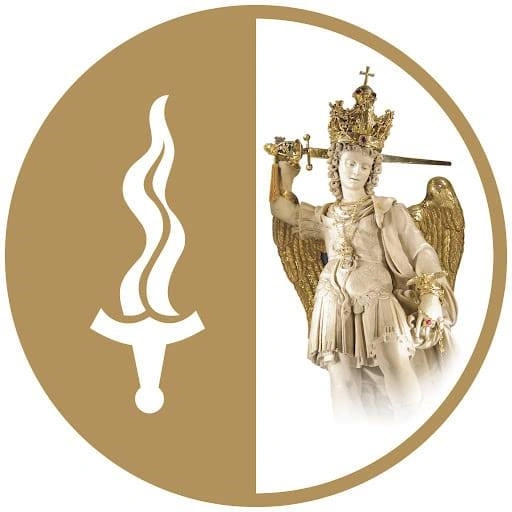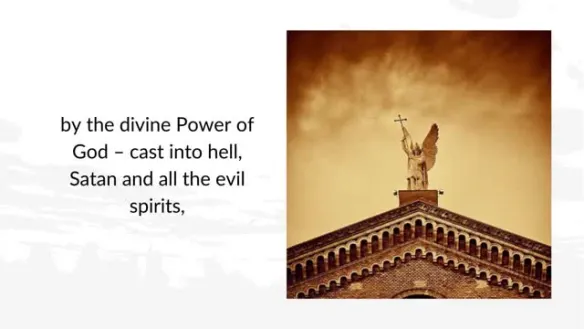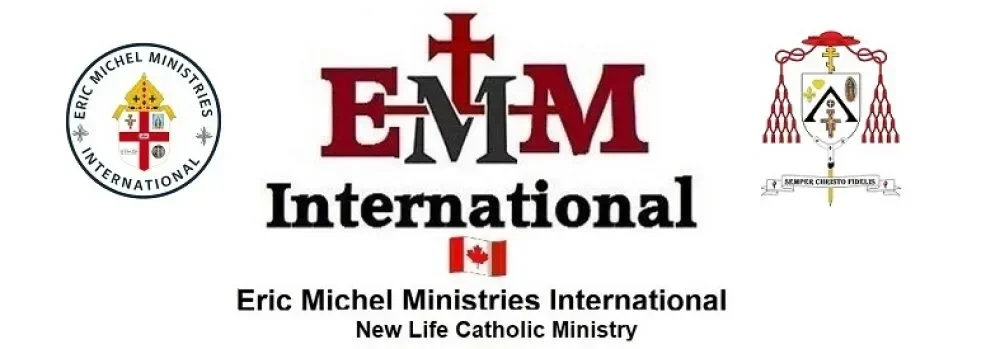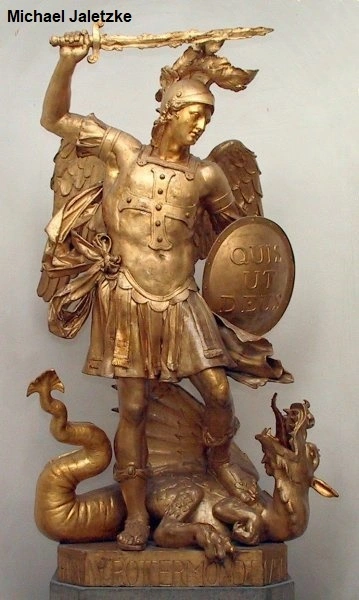
The Fraticelli (Italian for “Little Brethren”) or Spiritual Franciscans opposed changes to the rule of Saint Francis of Assisi, especially with regard to poverty, and regarded the wealth of the Church as scandalous, and that of individual churchmen as invalidating their status. The Fraticelli were declared heretical in 1296 by Boniface VIII.
The name Fraticelli is used for various sects, which appeared in the thirteenth, fourteenth and fifteenth centuries, principally in Italy, that separated from the Franciscan Order on account of the disputes concerning poverty. It is necessary to differentiate the various groups of Fraticelli, although the one term may be applied to all. The main groups were the Fraticelli de Paupere Vita and the Fraticelli de Opinione (also called Michaelites).
The Apostolic (also known as Pseudo-Apostles or Apostolic Brethren) are excluded from the category, because admission to the Order of Saint Francis was expressly denied to their founder, Gerard Segarelli. The Apostolic had no connection to the Franciscans, in fact desiring to exterminate them. Umberto Eco’s novel The Name of the Rose is set against the persecution of Fraticelli.
Etymologically, Fraticelli is a diminutive derived from the Italian frate (plural frati), itself derived from Latin Frater ‘brother’, in Italian often shortened to Fra when referring to members of religious orders.
Frati was a designation of the members of the mendicant orders founded during the thirteenth century, principally the Franciscans. The Latin Fraterculus does not occur in the old records which concern the Fraticelli. Etymologically the name Friars Minor (Fratres Minores) is equivalent to the diminutive Fraticellus. The ideal of the founder of the Friars Minor, Saint Francis of Assisi, was that his disciples, by evangelical poverty, complete self-denial, and humility, should lead the world back to Christ. The Italian people designated as Fraticelli all the members of religious orders (particularly mendicants), and especially hermits, whether these observed monastic precepts or regulated their own lives
Michaelites
This third group of the Fraticelli derive their name from Michael of Cesena (died 1342), their chief representative and natural leader. It must be premised that this name was in vogue during the fifteenth century and that the party it designated exerted great influence in doctrinal matters on the other groups as early as 1329.
The controversy began at Narbonne in 1321 between the Dominicans and Franciscans. The main question at issue seems to have been whether it is heretical to assert that Christ and His Apostles possessed no property either in particular or in common. In 1321 the Dominican Inquisitor at Narbonne, John of Belna, declared heretical the teaching of an imprisoned Beghard of that region, who asserted that Christ and the Apostles owned nothing either individually or in common. The Franciscan lector, Bérenger Talon, defended the Beghard. Berenger refused to retract and was threatened with punishment by the inquisitor. The matter soon developed into a general controversy between the Dominicans and Franciscans. On this particular issue the Relaxati and Zelanti agreed citing the Bull of Nicholas III, Exiit qui seminat, which had defined the poverty of the Franciscans, both individually and collectively, as equivalent to that of the Apostles, and had therefore transferred to the Roman Church all their holdings in land and houses, as had already been enacted by Innocent IV (14 November 1245).
Because of the important bearing of the controversy on the rule of the Friars Minor, a general chapter of the order was convoked at Perugia, in June of the year 1322, and the minister general, together with the other members of the chapter, caused two letters or communications to be published in which the mind of the chapter regarding the controversy is set forth at considerable length. Anticipating, on the advice of the Franciscan Cardinals Vitalis and Bertrand, the definitive decision of the pope, the chapter solemnly declared in favor of the “absolute poverty” of Christ (4 June 1322). This pronunciamento was signed by the general, Michael of Cesena, the provincial ministers of Southern Germany, England (William of Nottingham, not Occam), Aquitania, Northern France, and others, as well as by several renowned scholars. On 11 June the chapter solemnly published its decrees to all Christendom.
Indignant at the action of the chapter at Perugia, Pope John XXII published the Bull Ad conditorem canonum (8 December 1322), in which he renounces the dominion of all the goods of the Friars Minor hitherto assumed by the Roman pontiffs. He declared that the Roman Church renounced all its claims to the movable and immovable properties of the Franciscan Order and therewith returned them. John echoed Gerard of Abbeville, declaring that the ownership of a thing cannot be separated from its actual use or consumption. The Franciscans objected to this attack on their longstanding beliefs and customs and the poverty that was their hallmark.
In the name of the order Bonagrazia of Bergamo, a capable lawyer and up to that time a bitter enemy of the Zelanti, presented a daring protest against this Bull to the Consistory (14 January 1323). Although the pope thereupon revised the text of the Bull and reissued it under the original date, he incarcerated Bonagrazia and in the Bull Cum inter nonnullos (12 November 1323) declared heretical the assertion that Christ and the Apostles possessed no property either separately or collectively.
The controversy between the pope and the order soon took on a political character, the Minorites having been appointed counselors to Louis IV the Bavarian, King of Germany, who also was engaged in a conflict with the pope. The Sachsenhausen Appeal of the King Louis of 22 May 1324 was full of invectives against the “heretic who falsely designates himself Pope John XXII” for doing away with the poverty of Christ. This famous “Spiritualist excursus” is closely connected with the Appeal of Bonagrazia, and with writings of Ubertino of Casale and of Peter John Olivi. It is certain that it originated among the Franciscans who, under the protection of the king, aimed it at John XXII and his teaching, although Louis IV later denied all responsibility in the matter. The result was that Louis IV was excommunicated. The general chapter of the order, assembled at Lyon on 20 May 1325 under the presidency of Michael of Cesena, forbade any disrespectful reference to the pope.
On 8 June 1327, Michael received instructions to present himself at Avignon, a command which he obeyed in December 1327. The pope having sharply reproved him in public (9 April 1328) for the chapter’s action at Perugia, he drew up a secret protest and, fearing punishment, fled, despite the orders of the pope, to Aigues-Mortes and thence to Pisa, together with Bonagrazia of Bergamo and William of Occam.
In the meantime, Louis the Bavarian had entered Rome with a German army, and had himself solemnly crowned Emperor of Rome by Sciarra Colonna (17 January 1328); on 12 May he nominated and had consecrated as antipope Pietro Rainalducci of Corvara, a Franciscan, under the name of Nicholas V. The three fugitives from Avignon accompanied Louis to Bavaria, where they remained till their deaths. After Louis IV had returned to Bavaria, Nicholas V, deprived of all support, took refuge with the Count of Donoratico.
John XXII deposed Michael as general of the order and appointed the Minorite Cardinal Bertrand de Turre vicar-general of the order to preside at the chapter to be held in Paris (2 June 1329). Obedient to John XXII, he induced the majority of the order to submit to the Apostolic See. Michael of Cesena and all his adherents, the Michaelites, were repudiated by the order. At the same time, by command of John XXII, papal proceedings were instituted against them everywhere. The Michaelites denied John’s right to the papacy and denounced both him and his successors as heretics.
The proceedings against Michael were published in various localities. On 5 September 1328, John XXII commanded the imprisonment of Fra Azzolino, who was acting as Michael’s vicar, and on 18 August 1331, the arrest of another vicar, Fra Thedino, who represented Michael in the March of Ancona.
Prominent among the followers of Michael were the more or less numerous Minorites in the monasteries of Todi and Amelia (against whom proceedings were instituted in 1329–30), of Cortona (1329), and of Pisa (1330), where, however, they appeared openly as late as 1354, and at Albigano, and Savonna (1329–1332). Papal decrees reveal the presence of Michaelites in England (1329), Germany (1322), Carcassonne, Portugal (1330), Spain (1329), Sicily and Lombardy (1329, 1334), Sardinia, Armenia, and other places.
The records of a process (1334) conducted in irregular form against the Fraticelli of the Franciscan monastery at Tauris, who had been reported by Dominicans, show that they inveighed openly against John XXII and upheld the views of Michael of Cesena, although in their apocalyptic manner they declared that the order of the Friars Minor was divided in three parts, and that only those would be saved who would journey to the East, i.e. themselves. It is uncertain whether these were identical with the Fraticelli in Armenia, Persia, and other oriental localities, where all bishops were commanded by Clement VI to prosecute them (29 May 1344). For a long time, the sect prospered exceedingly in the Duchy of Spoleto on account of the continual political turmoil. In a process instituted against a particular Umbrian group of Fraticelli in 1360, it is noted that Fra Francesco Niccolò of Perugia was their founder. They pretended to observe the Rule of St. Augustine, but were fanatical on the question of poverty and regarded all prelates as guilty of simony.
They imitated the Sicilian Fraticelli in their doctrines and methods of instruction. A letter is still extant which the Fraticelli of the Campagna (1353–1355) wrote to the magistrates of Narni when they heard that one of their number (Fra Stefano) had been cruelly imprisoned by the Inquisition of that city twelve or fifteen years before. In this letter, they petitioned the magistrates to liberate him according to the example of the cities of “Todi, Perugia, Assisi, and Pisa”
The Congregation of Saint Michael the Archangel (Latin: Congregatio Sancti Michaëlis Archangeli) abbreviated CSMA, also known as the Michaelites, is a Catholic clerical religious congregation of Pontifical Right for men (brothers and priests) founded by the Blessed Father Bronisław Markiewicz, a Polish priest from Miejsce Piastowe, Poland. The Congregation of Saint Michael the Archangel is one of the 30 officially recognized groups of the Salesian Family of Don Bosco.
On September 29, 1921, the Bishop of Kraków Adam Stefan Sapieha issued the Erecting Decree of the Congregation. Two members of the congregation, Blessed Władysław Błądziński and Adalbert Nierychlewski, are among the 108 Martyrs of World War II. The Congregation was recognized by Pope Paul VI on June 15, 1966.
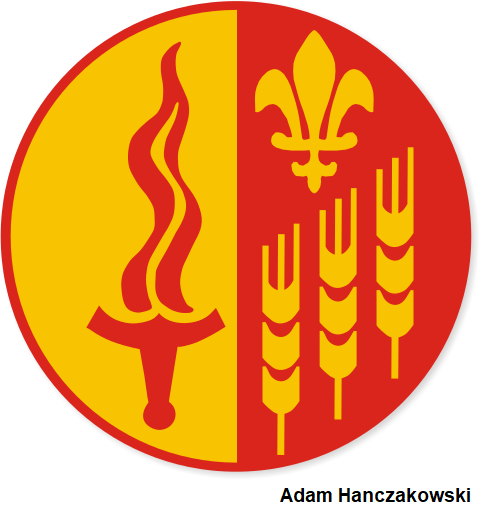
The Michaelites today
Headquartered in the suburbs of Warsaw, the congregation is a community of brothers and priests that operates in a number of countries around the world including Argentina, Paraguay, Italy, Germany, Belarus, Papua New Guinea, Australia, Austria, Canada and the USA. At the end of 2020, the congregation had 33 communities and 311 members, including 270 priests.
In September 2020, Pope Francis congratulated the congregation on it upcoming centennial anniversary, and encouraged its members to continue to spread devotion to St. Michael. In September 2021, the Congregation celebrated its 100-year jubilee with a Mass of Thanksgiving celebrated at St. Peter’s Cathedral Basilica (London, Ontario).
Knight of St. Michael
Interested in becoming a devotional Knight of St Michael?
- Daily Bible reading
- Daily exorcism prayer to St Michael
- Daily angelic chaplet to St Michael
- Fast each Friday on bread and water (or a good deed if a fast is impossible)
- Monthly Reconciliation
- Monthly Eucharist Adoration
- Nine day Novena to St Michael before the feast day on 29th September.
THE CHAPLET OF ST. MICHAEL
O God, come to my assistance. O Lord, make haste to help me. Glory be to the Father.
1. By the intercession of St. Michael and the celestial Choir of Seraphim may the Lord make us worthy to burn with the fire of perfect charity. Amen.
Our Father and three Hail Marys
2. By the intercession of St. Michael and the celestial Choir of Cherubim may the Lord grant us the grace to leave the ways of sin and run in the paths of Christian perfection. Amen.
Our Father and three Hail Marys
3. By the intercession of St. Michael and the celestial Choir of Thrones may the Lord infuse into our hearts a true and sincere spirit of humility. Amen
4. By the intercession of St. Michael and the celestial Choir of Dominations may the Lord give us grace to govern our senses and overcome any unruly passions. Amen.
Our Father and three Hail Marys
5. By the intercession of St. Michael and the celestial Choir of Virtues may the Lord preserve us from evil and falling into temptation. Amen.
Our Father and three Hail Marys
6. By the intercession of St. Michael and the celestial Choir of Powers may the Lord protect our souls against the snares and temptations of the devil. Amen.
Our Father and three Hail Marys
7. By the intercession of St. Michael and the celestial Choir of Principalities may God fill our souls with a true spirit of obedience. Amen.
Our Father and three Hail Marys
8. By the intercession of St. Michael and the celestial Choir of Archangels may the Lord give us perseverance in faith and in all good works in order that we may attain the glory of Heaven. Amen.
Our Father and three Hail Marys
9. By the intercession of St. Michael and the celestial Choir of Angels may the Lord grant us to be protected by them in this mortal life and conducted in the life to come to Heaven. Amen
Our Father and three Hail Marys Say one Our Father in honor of each of the following leading Angels: St. Michael, St. Gabriel, St. Raphael and our Guardian Angel.
O glorious prince St. Michael, chief and commander of the heavenly hosts, guardian of souls, vanquisher of rebel spirits, servant in the house of the Divine King and our admirable conductor, you who shine with excellence and superhuman virtue deliver us from all evil, who turn to you with confidence and enable us by your gracious protection to serve God more and more faithfully every day.
Pray for us, O glorious St. Michael, Prince of the Church of Jesus Christ, that we may be made worthy of His promises.
